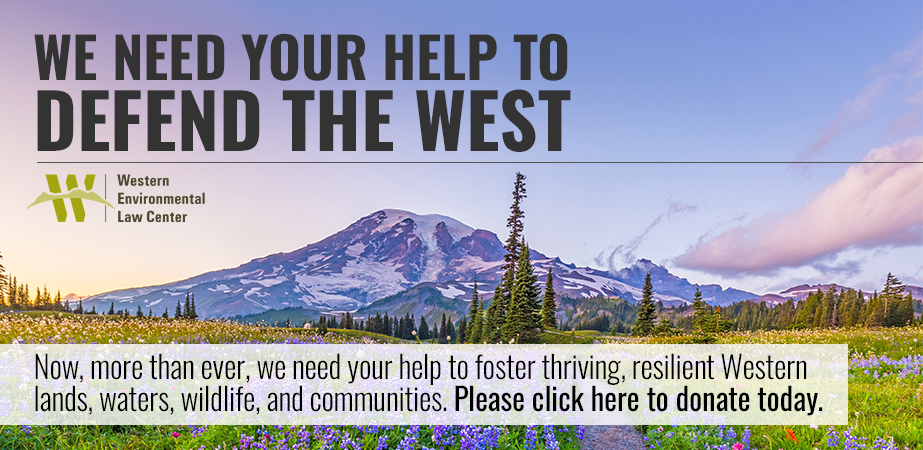Yesterday, as record-setting heat threatened the sustainability of Washington’s water resources, a three-judge panel of the Washington Court of Appeals unanimously invalidated the Washington State Department of Ecology’s (“Ecology’s”) waste discharge permits for concentrated animal feeding operations (“CAFOs”), finding the permits violated state and federal law by failing to control the discharge of excess nutrients, bacteria, and other pollutants.
The court’s decision was the result of a 2019 appeal by Puget Soundkeeper Alliance, Community Association for Restoration of the Environment (“CARE”), Friends of Toppenish Creek, Sierra Club, Waterkeeper Alliance, and Center for Food Safety. The community, environmental, and food safety groups argued that state and federal law required more rigorous permit conditions, and that such measures were necessary to protect drinking water from nitrate pollution, and to protect shellfish beds and the public. Roundly agreeing with the groups, the court sent the permit back to Ecology. Specifically, the Court made clear that Ecology must issue CAFO permits that prevent further contamination of Washington’s waters and address the realities of our changing climate.
“We are glad the court agrees with us that Ecology’s permits must protect Washington’s waters,” said Andrew Hawley, attorney with the Western Environmental Law Center. “Fortunately, communities can turn to the courts when agencies don’t comply with their statutory obligations to protect public health and the environment.”
“Today was a victory for clean water and the rule of law—the Court’s decision upheld our simple ask, that permits have enforceable limits set at levels appropriate to protect public health,” said Sean Dixon, Executive Director, Puget Soundkeeper. “With this clear, well-reasoned decision in hand, the State and facility managers have a clear and achievable roadmap that we hope will provide certainty for regulated sites as well as public health protections for Washington State communities.”
“This decision is long overdue,” said Helen Reddout, President, CARE. “The people of the Lower Yakima Valley have been suffering for decades. Ecology needs to follow the law and protect us from this industry that has ruined our quality of life.”
In its decision, the Court ruled that Ecology unlawfully allowed CAFO manure storage lagoons “to continue to operate and potentially discharge contaminants into groundwater indefinitely,” finding that “a fair-minded person” would “question whether the permits contain” modern pollution control technologies for factory farms, as required under state law.
In addition, the Court held that Ecology’s permit failed to ensure the discharges from these facilities will not degrade water quality, both in nearby surface waters and local groundwater. The Court also held that the permit failed to require effective monitoring and improperly shut the public out of the process for reviewing the individual plans for each facility.
“We are pleased with the Court’s finding that Ecology’s permitting scheme for CAFOs is inconsistent with federal law, which mandates CAFOs demonstrate how they will protect water quality prior to receiving a permit,” said Kelly Hunter Foster, Senior Attorney for Waterkeeper Alliance. “This decision will ensure that Ecology requires CAFOs to provide site specific information about their operations and requirements for compliance during this permitting process, and it restores the public’s legal right to review and comment on these issues.”
The Court further faulted Ecology for failing to meet its “responsibility to consider the impacts of climate change” under the State Environmental Protection Act, the landmark legislation guaranteeing Washingtonians the fundamental and inalienable right to a healthful environment.
“In the midst of a historic heat wave, it is crucial that the court affirmed our regulators’ duty to evaluate factory dairies in the context of the ongoing climate crisis. Industrial dairies use and pollute massive amounts of water, contributing to our worsening natural environment and climate. The state must shield our communities from these bad neighbors,” said Amy van Saun, senior attorney with Center for Food Safety’s Pacific Northwest office.
“Sixty percent of the wells within a mile of a cluster of Yakima County CAFO dairies are unsafe for drinking,” said Jean Mendoza, executive director at Friends of Toppenish Creek in Yakima County. “The Friends of Toppenish Creek were thrilled to read the Court of Appeals’ careful findings. Now comes more hard work because in Yakima County less than a fifth of CAFO dairies have permits. We look forward to a time when all CAFOs in Washington are under a strong permit.”
“The Courts of the State of Washington have finally recognized the devastation that industrial dairies have wrought upon the people of this great state,” declared Charlie Tebbutt, lead counsel for the conservation groups. “It is long past time for Ecology and the Governor to take responsibility for protecting the people from this rampant pollution, which two federal judges in Washington have previously found to be taking place based on actual site information.”
The groups are represented by the attorneys at the Law Offices of Charles M. Tebbutt and the Western Environmental Law Center. The facts and federal decisions finding that industrial dairies are causing an imminent and substantial endangerment to public health may be found at http://charlietebbutt.com/cafos.html, and https://pugetsoundkeeper.org/current-priorities/agricultural-pollution/.
Contacts:
Andrew Hawley, Western Environmental Law Center, 206-487-7250, gro.w1752295098alnre1752295098tsew@1752295098yelwa1752295098h1752295098
Katelyn Kinn, Puget Soundkeeper, 920-782-0114, gro.r1752295098epeek1752295098dnuos1752295098tegup1752295098@nyle1752295098tak1752295098
Helen Reddout, Community Association for Restoration of the Environment, 509-854-1662
Jean Mendoza, Friends of Toppenish Creek, 509-874-2798, moc.d1752295098uolci1752295098@azod1752295098nemrn1752295098aej1752295098
Amy van Saun, Center for Food Safety, 585-747-0151, gro.y1752295098tefas1752295098doofr1752295098ofret1752295098nec@n1752295098uasna1752295098va1752295098
Kelly Hunter Foster, Waterkeeper Alliance, 212-747-0622, ext. 160, gro.r1752295098epeek1752295098retaw1752295098@rets1752295098ofk1752295098
Charlie Tebbutt, Lead Counsel, 541-344-3505, moc.w1752295098alttu1752295098bbet@1752295098eilra1752295098hc1752295098
Jesse Piedfort, Sierra Club, 206-378-0114, gro.b1752295098ulcar1752295098reis@1752295098trofd1752295098eip.e1752295098ssej1752295098

